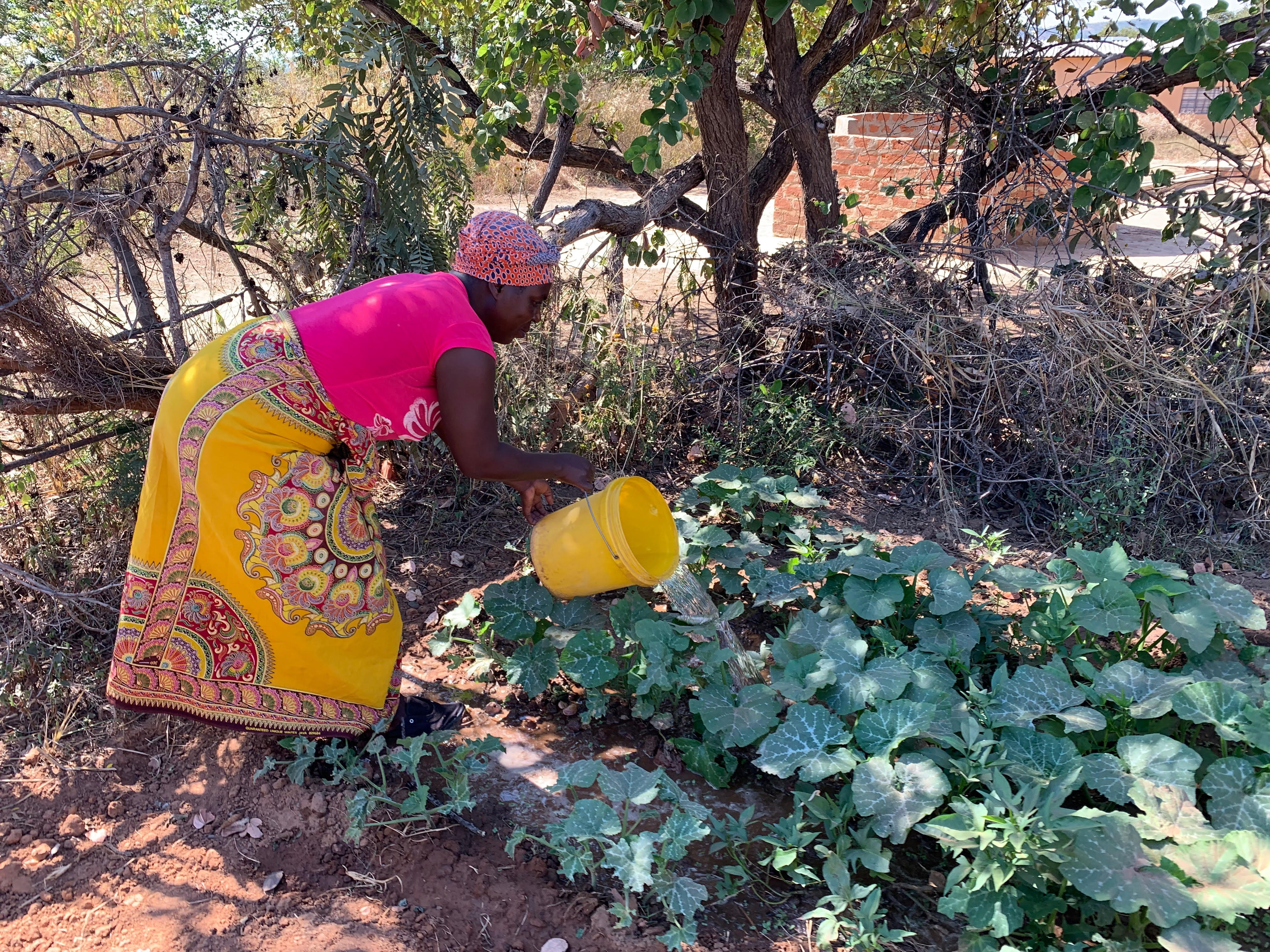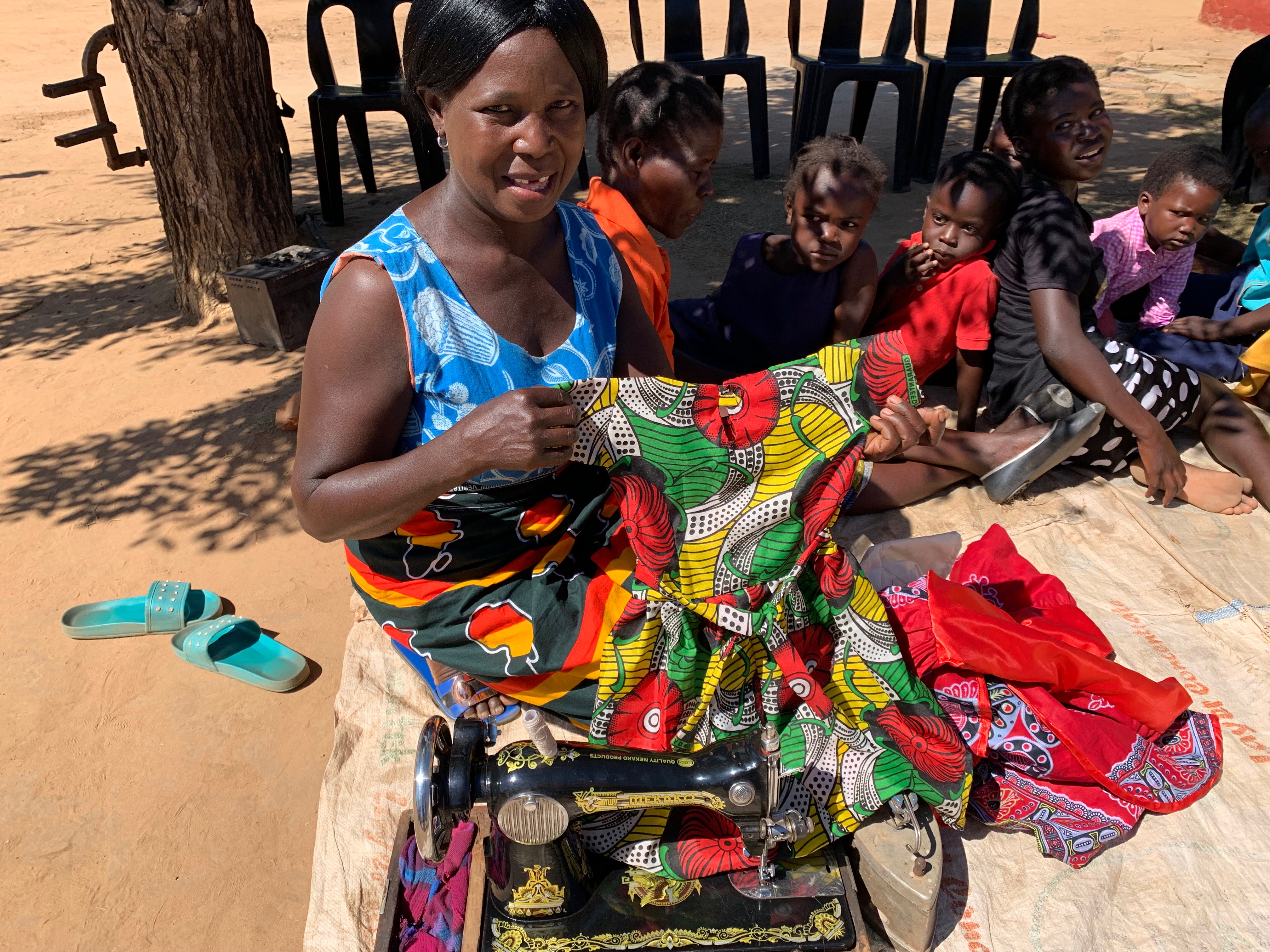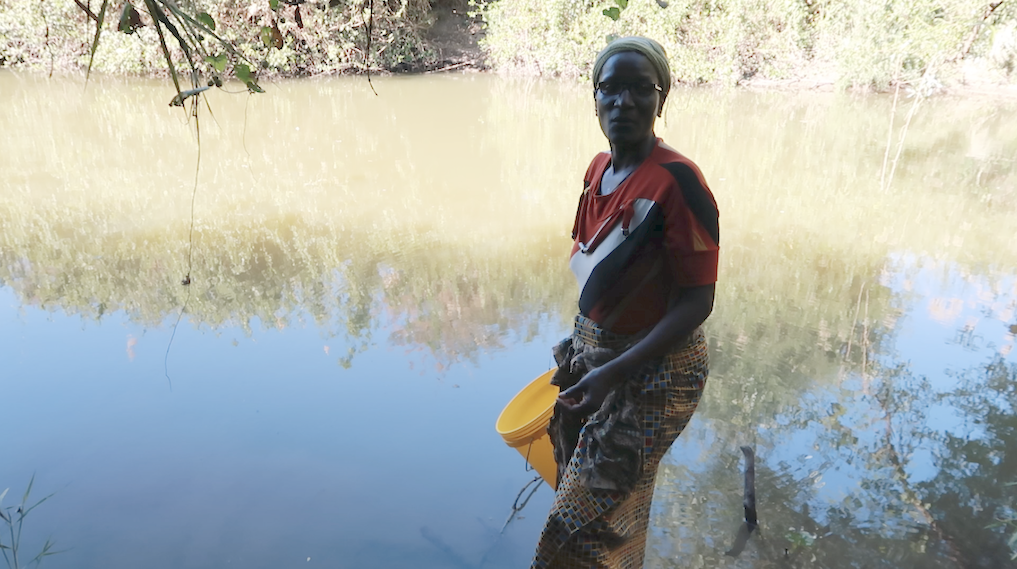Day 2: Another Day, Another Amazing Story -Emma Moses
Did you ever think reusing bath water could prevent world hunger?

To start off our eventful day, we headed over to the Kapuluwe village. When we first arrived, we got the opportunity to meet with Mary and her 4 children. Mary told us how her life had immensely changed now that the water well was installed and so close to her house. Her children now attend school on a daily basis because she is no longer fetching water for long periods of time and is there to get them prepared each morning for school. She got to show us her luscious garden and how all of her plants were flourishing. Mary showed us her innovative skill as she had a drainage system that led from her shower area to the soil of her banana tree. This way Mary didn’t waste any water, but instead, she recycled it for watering of her plants. She really took pride in her plants as it is a great source for food and a product to sell in the market to make money. Mary told us that she used the money she profited from her sales to pay for her children’s education expenses. To Mary, it is so important for her children to attend school and get an education. Her children were so excited when we left them with a soccer ball because they currently were using a ball composed of trash to kick around. An item like this really makes a huge impact on their lives because it brings pure joy to them.
Meet generous Gertrude…

Next up, we visited Gertrude, a 47-year-old wife, and mother of 8 children at her home in the Kasbisha village. As she sat down with us and told us about the difficulties she experienced before receiving the water well, one story, in particular, stood out. She told us how she would usually walk about 20 minutes to a man-made water hole to collect water daily and then all of a sudden, one day the water had a very distinct, unpleasant smell. Since this was the only source of water, she was forced to continue collecting from it. A few days passed and the water got so awful and rancid that when she cooked with it, many of her children refused to eat because the food tasted how the water smelled. Within the next few days, when she returned to the water hole, she found a dead calf that had risen to the top and was floating on the surface of the water. Now it all made sense to her as to why the water was tasting so nauseating. Unfortunately, Gertrude had no choice, but to cook with this contaminated water because it was the ONLY water source. Another story that stood out was how Gertrude experienced kids passing by her home, asking for water as they were dripping in sweat from working. She felt bad offering them the little amount she did because she has so many children of her own to nourish. Now that she has the water well, and so close, she said she is so open and generous in giving water to anyone who asks! Overall, Gertrude has a great passion for her kids and their future and a very positive outlook on life. As we left her village, she kept repeating “strong women, strong world” with a genuine, pure smile on her face.
How a woman can support her household…

The third village that we traveled to is called Kambeba. We were warmly greeted by 45-year-old Beauty. She was so excited to see us as she said to me “I’ve been waiting days for you to arrive.” We began talking to her and a few of her daughters next to the well and she constantly repeated that we need to tell people at home that we need more wells for the other communities. She was so thankful for “Mama Davis” as she called her and for the well she funded. She took us over to her home where we sat down with Georgina and her various children and grandchildren. We got to hear their stories and how they are thriving from the installation of the well. In particular, Georgina was telling us about her sewing skills and the business that she now has time to pursue since she no longer has to spend her days collecting water. She told us how she not only makes clothes for her family, but she also takes her product and sells it in the markets down in Lusaka, the local city. She was so proud of her sewing abilities that she presented to us pieces of clothes she made and then proceeded to get out her machine and iron. Since they don’t have electricity, Georgina had coals inside of her crafted iron which allowed the iron to warm up. So inventive! Before leaving, we asked each of the young kids what they want to be when they grow up. Many of them said nurses, doctors, teachers, and businessmen and women. One sweet little girl, Grace, courageously told us how she wants to be the head doctor of all of Zambia when she grows up. There was a time when these kids thought that they may never have a future. Now, with fresh running water, it has given them hope for a successful future.
Imagine walking every day to collect contaminated water that looks like this…

To finish off a great day, we headed over to the Muspkata village where we were greeted so vibrantly by a tribe of girls and boys singing and dancing for us. As we hopped out of the cars, they grabbed our hands to include us in their dancing celebration. Soon after, we got the opportunity to take a walk with Edith, a 50-year-old mother, to the river where they collected water before the installation of their well. Edith, carrying two buckets on her back directed us through the rocky terrain to the river. As soon as we spotted the river, my jaw dropped in shock of how brown and contaminated this water was. Edith proceeded to show us the process of collecting the water and explained the dangers that come with it. She told us a story of how a young kid was once collecting water and the child got swept into the river and ended up drowning. You could see the sadness on her face as she told us this story. After showing us how she collects the water, she then explained that since the water is so contaminated, they would have to collect the water in the buckets and then wait a day or so for the sediments in the water to settle at the bottom so that they weren’t directing swallowing them. Settling the water does not necessarily change the type of water, but convinces the people that it is somewhat safe to use. It was so devastating to see the type of water these people had to use. You could really tell how appreciative they were that they no longer had to risk their lives collecting this murky, unsanitary water.
“A strong woman has faith that she is strong enough for the journey, but a woman of strength has faith that it is in the journey that she will become strong.” -Unknown
